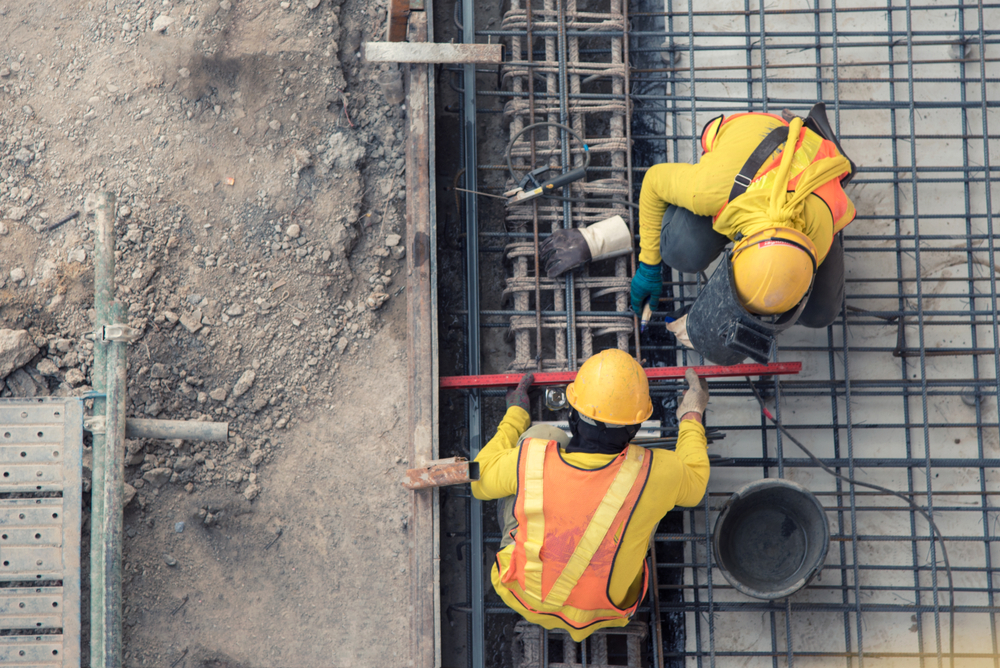
Building a house is a big job, and hiring a renowned and experienced builder is essential if you want the project to go successfully.
How To Select A Builder
Choosing a builder for a new home is one of the most critical decisions you will make during the construction process. Selecting the best one for you and your project might save you money and help you prevent complications later on. Because most homebuyers need to be more experienced in the building industry, separating the good from the bad can be challenging. This is why, while making a decision, one of the most important elements is reputation. If a builder has a big list of satisfied prior clients, it means they delivered great results on schedule.
According to Master Builders, they must check a few extra boxes. "Your first point of contact should be to confirm that they are a registered or licensed builder, then look at their previous experience and whether it fulfills your requirements," they advise. "You might want to employ a builder who has worked on projects similar to yours. Some builders, for example, specialize in major renovations rather than new construction. It's also a good idea to look into their previous work and, if you need more assurance, request to talk with a previous client." The owner should do their study, and they also advise home purchasers to make sure they get along with the builder to maintain the lines of communication open during the construction. "Finally, be upfront about pricing," she advises. "However, keep in mind that selecting a builder based on price may indicate bad quality at the end of the project."
Here Is A Checklist For Builders:
- Examine their reputation to check if they are reputable.
- Examine their license and insurance.
- Request references.
- Speak with prior customers
- Check that your contract's payment installments correspond to the project milestones.
- Inquire about how and how frequently they will communicate with you.
- Will they agree to onsite inspections?
- Inquire if they have long-term partnerships with subcontractors.
- Before signing, get the contract reviewed by an expert.
- Discuss fees and variants.
- Avoid any builder who puts you under duress or bullies you.
- Will they set a deadline?
- Avoid contractors who issue vague quotes.
What Kind Of Builder Do You Require?
In general, the market is divided into two groups of builders. Custom builders work on boutique projects that are typically more expensive and require specialized attention and care. Other construction businesses concentrate on mass production within estates that provide affordability and quickness.
-
Boutique
Custom builders are typically smaller businesses that specialize in the construction of one-of-a-kind projects. They usually take care of their distinctiveness and quality and only work on a few sites simultaneously.
Tip: Price does not necessarily equate to quality, so do your homework.
-
Volume
A volume builder is a construction company specializing in estates and building hundreds of homes per year to strict specifications. They typically have a large number of clients, so assessing their reputation is simple, and due to the volume of work, they can frequently turn around projects fast and at a reasonable rate. However, this makes them less inclined to wish to add or customize things.
Tip: Even though they have a well-known name, they are still your best constructor. Examine online forums to see if there are any reoccurring concerns with their homes, and make sure the timescales and payment schedules are reasonable for you.

Putting A Price On It
Contrary to popular assumption, most builders are unwilling to negotiate on price. Volume builders frequently work on a tight margin, and driving down the cost may mean that the artisans cut corners onsite. Getting bids from various builders is the best way to secure decent pricing, whether bespoke or off-the-plan.
What Are The Associated Costs?
Ensure you are familiar with the contract and understand what is and is not covered. In most situations, a building contract only covers the construction of the property. Thus payments for building approvals, inspection costs, site preparation, and any customizations outside the contract, driveways, or landscaping are not included.
What Should A Contract Contain?
Contracts are essential in the construction game, and if something is promised but not written down, be reassured if it occurs later. If you have doubts about your contract, it is worth paying a few hundred dollars to have it reviewed by an experienced construction lawyer who will flag any issues.
A basic contract should have the following clauses:
- Both parties recognized
- The license number of the builder
- Details on the contractor's insurance certificate
- Detailed descriptions of the job
- Any modifications or additions, as well as the associated fees
- A payment plan that details project milestones and when payments are due.
- Construction shall be certified following the Ajman Building Code and other relevant standards.
- A summary of what happens in the event of a delay
- What should you also do if something goes wrong?
Conclusion
It's an exciting moment to be a builder, and it can also be stressful if you hire the wrong builder. Choosing a builder for a new house takes time, but it is well spent, given the amount of money involved. You should consider these numerous crucial elements before making a selection.










Comments (0)
Leave a comment